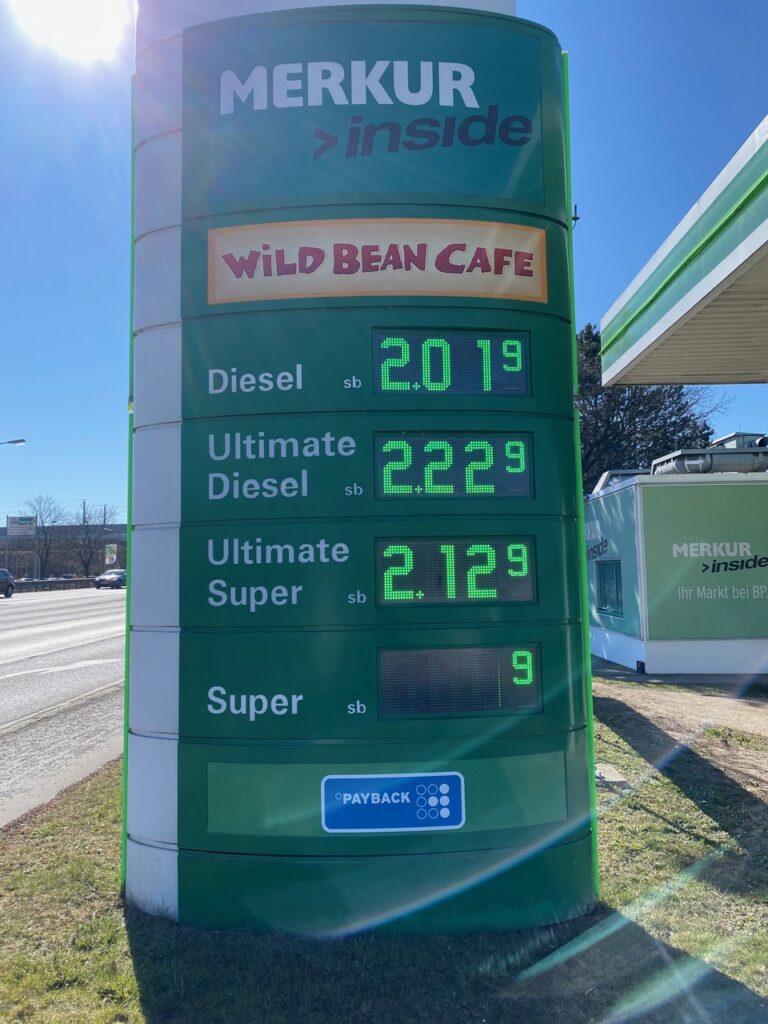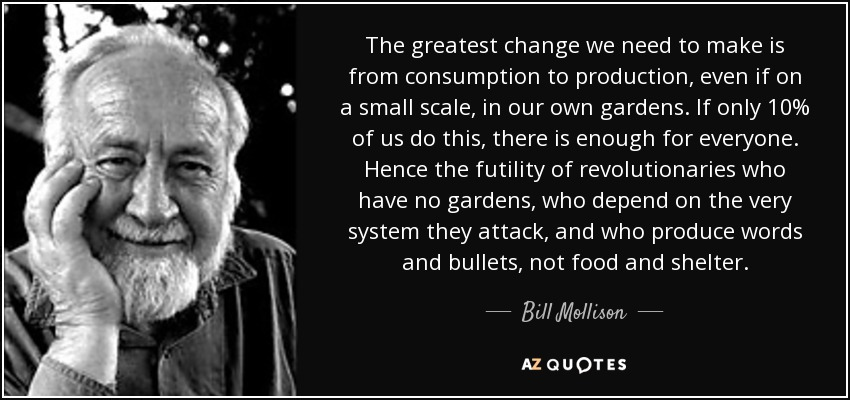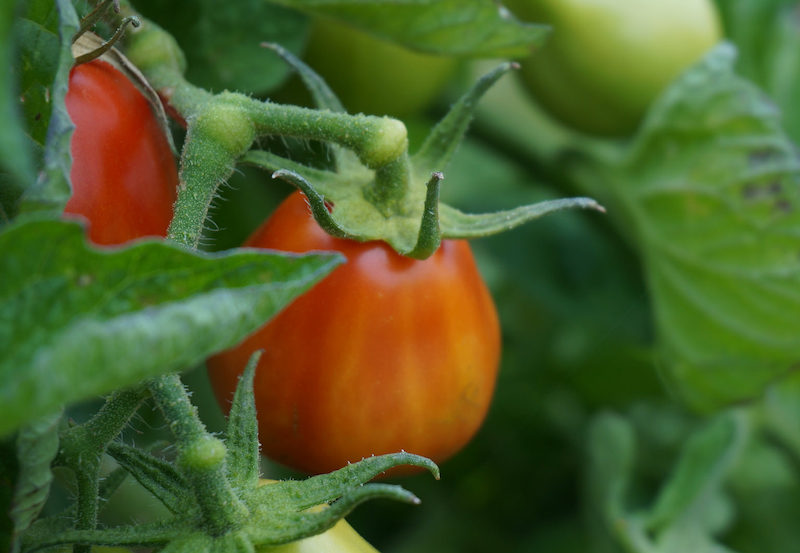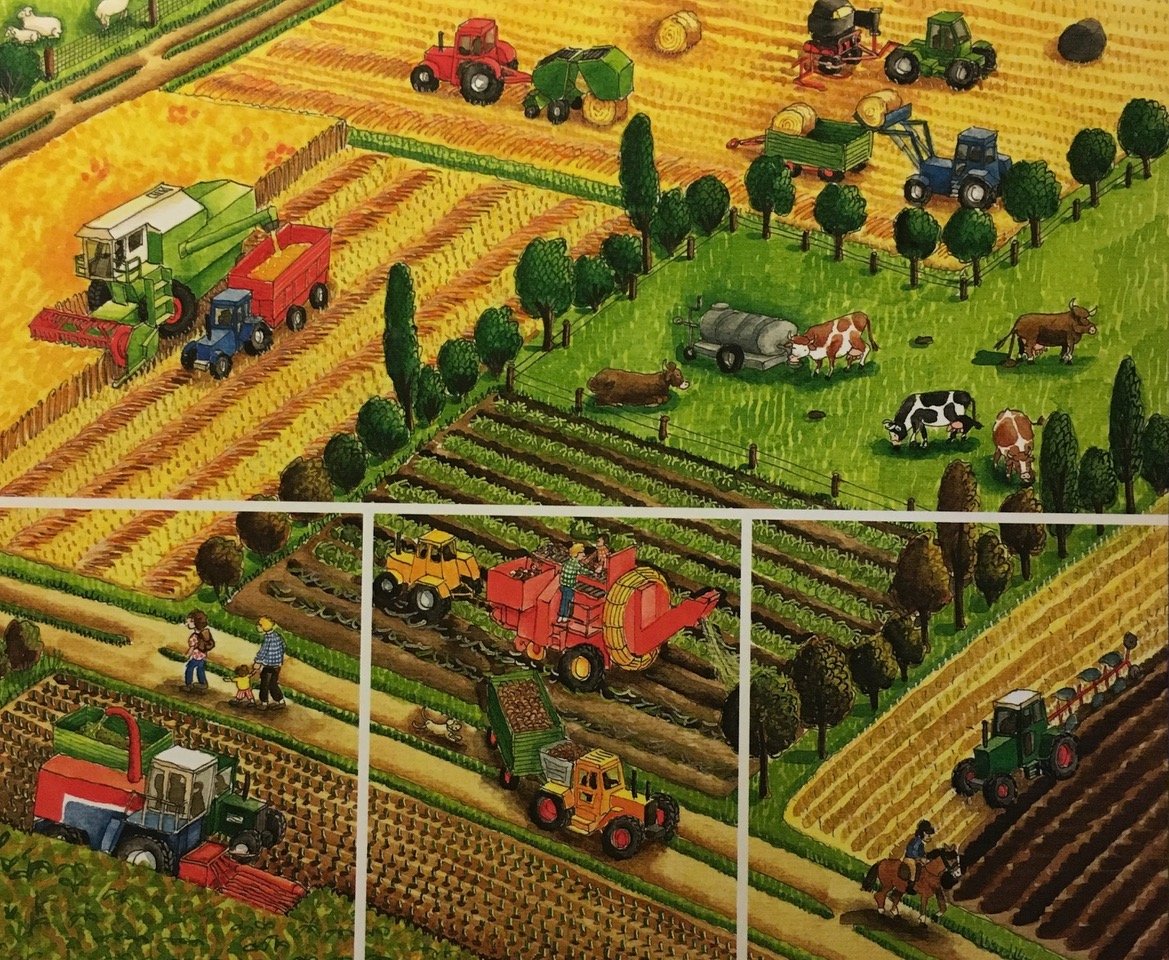We hit these days a psychological threshold which accelerates the collapse of industrial agriculture. Many gas stations across Europe showed for the first time ever a price of EUR 2 or more for one liter of petrol or diesel.

While most consumers think about a rising bill to run their cars, the EUR 2 threshold has much more significance in regard to food production and security. We should be on red alert and take every possible measure to move away from industrial agriculture and build fossil fuel independent and small-scale food production systems. Otherwise, there is a high risk that we will not worry about how to fuel our cars, but about how to feed our bodies.
Economist Jeremy Rifkin explains in the French documentary Demain (Tomorrow) the implications of fossil fuel dependence and how the current energy mix which runs our planet is a direct cause for climate change. We have trimmed this eye opening 2 ½ minutes long scene of the documentary for you to watch. Everybody needs to understand that we are on a collective suicide trajectory if we don’t make a joint effort to transform our food production system.
Rifkin’s last book predicts the collapse of the fossil fuel civilization by 2028. The collapse will happen in the foreseeable future and we shall not debate whether this will be in 2028 or 2035. The conversation and the action must focus on transforming food production.

Bill Mollison, the founder of permaculture, recognized the self-destructive effects of industrial agriculture early on. He promoted self-sufficient, high yield gardening as a solution to ecological and social corrosion. The truth is, that while both, a supermarket and a community garden can feed people in any given town or village, it is only the community garden which creates bonds between its members. Supermarkets create the fake impression of independence but isolate the consumer not only from the purchased product, but also from the land on which this product has been manufactured.
The social impact of industrial agriculture is a growing alienation from communities and commons. A vicious cycle of isolated consumers who want more in order to compensate for far too little participation in both community and commons. Rising fuel prices therefore need to be viewed as a tremendous opportunity to transform our societies into a better place, where we again become genuine members of purposefully productive work units which help us to find satisfaction and enjoyment with less consumption.

Further Reading:
- Jeremy Rifkin: The Green New Deal: Why the Fossil Fuel Civilization Will Collapse by 2028
- Albert Bartlett: Arithmetic, Population and Energy
- Bill Mollison: Introduction to Permaculture
